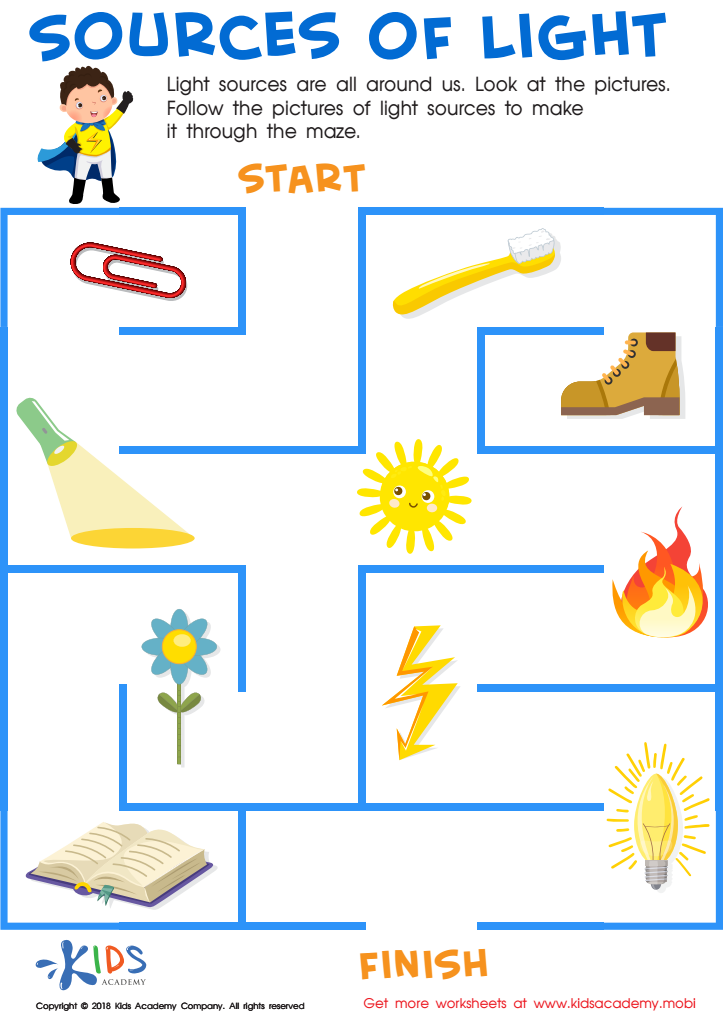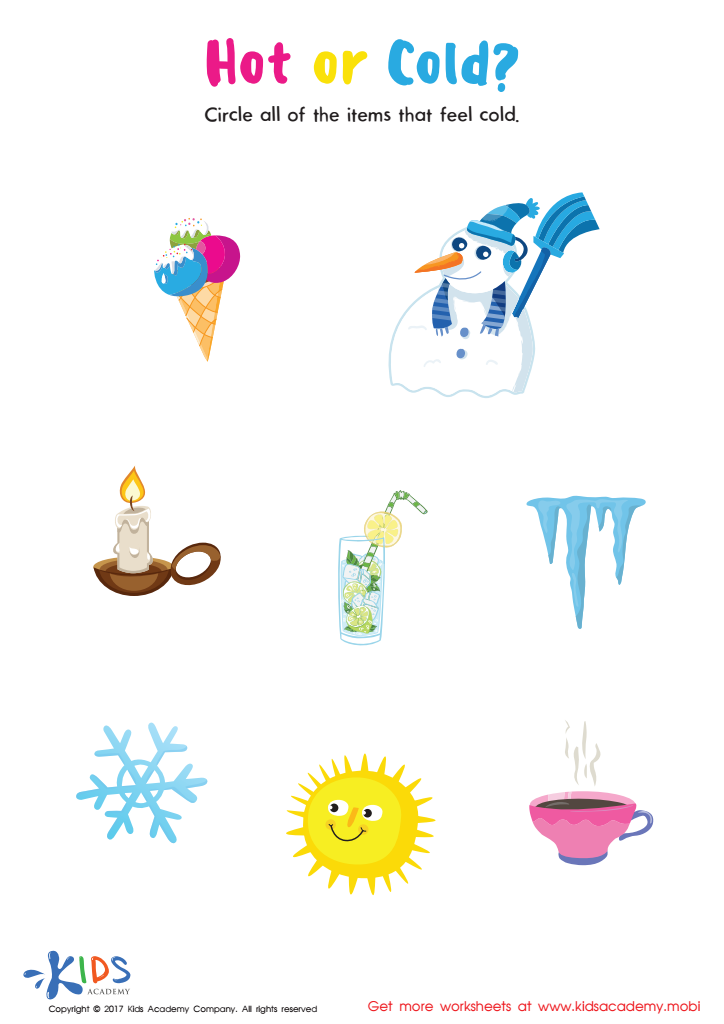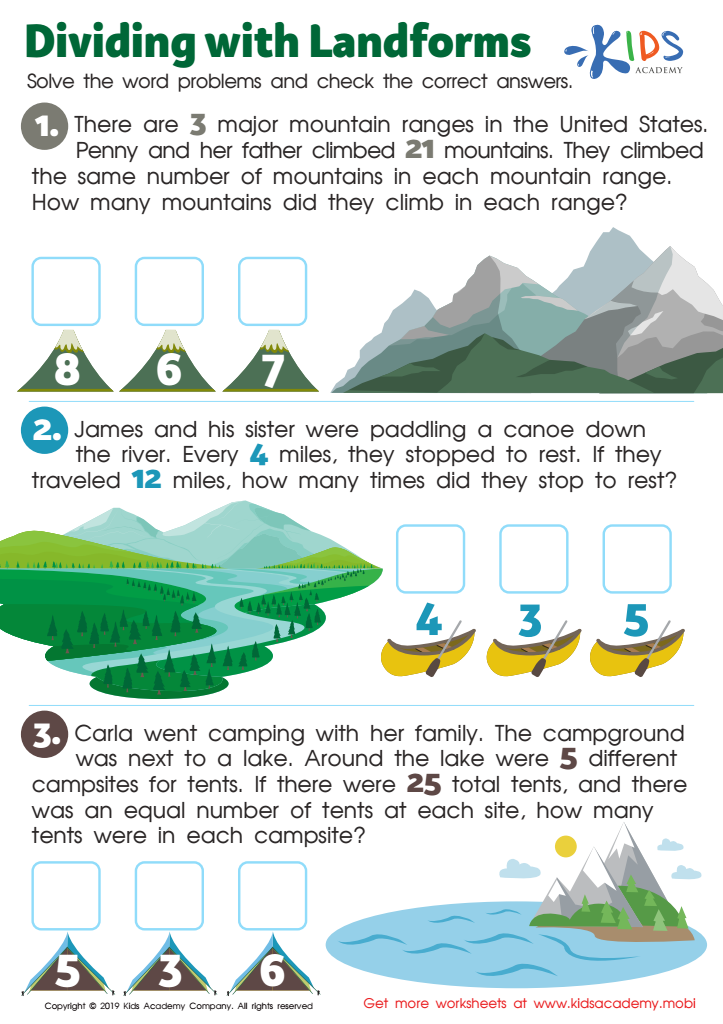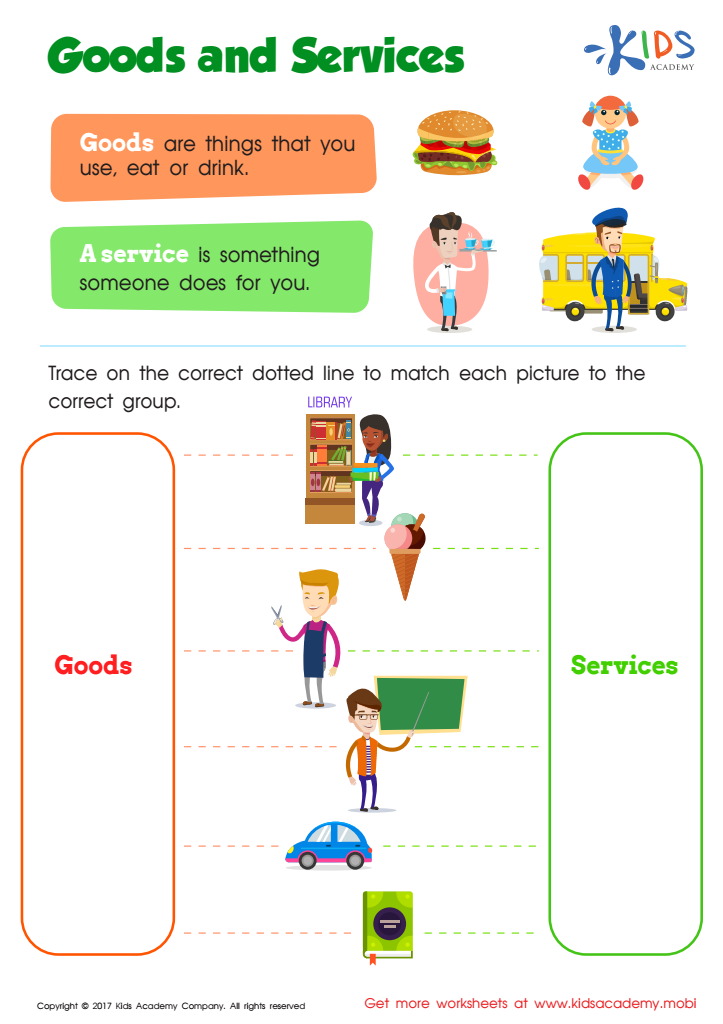Enhancing categorization skills Normal Worksheets for Ages 4-8
4 filtered results
-
From - To
Enhancing categorization skills is crucial for young learners. Kids Academy offers Normal Worksheets designed for children aged 4-8 to help them master this key skill. These engaging activities encourage kids to group objects by similarities and differences, bolstering their cognitive development and critical thinking. Our age-appropriate worksheets cover various themes, making learning fun and stimulating. Whether sorting shapes, animals, or everyday items, kids will practice identifying patterns and organizing information. Perfect for both parents and teachers, these worksheets support children in building strong foundational skills that are essential for their academic success. Start enhancing categorization skills today!


Sources of Light Worksheet


Hot or Cold Printable


Dividing with Landforms
Enhancing categorization skills in children aged 4-8 is critical for their cognitive and academic development. Categorization—the ability to sort objects, ideas, or information based on common attributes—is fundamental for logical thinking, problem-solving, and understanding the world around them.
First, categorization helps with language development. As children group similar items, they learn new vocabulary and better understand concepts and relationships. For example, understanding that apples, bananas, and oranges all belong to the category of fruits aids in learning and using these words correctly in context.
Second, strong categorization skills support mathematics and science learning. In math, categorizing objects leads to understanding basic principles such as sorting, counting, and even more complex concepts like data organization and pattern recognition. In science, it aids in grasping natural classifications, such as grouping animals by habitat or plants by structure.
Furthermore, categorization fosters memory retention and retrieval. This skill aids children in organizing information efficiently in their minds, making it easier to recall details during learning activities or daily tasks.
Finally, improving categorization helps develop critical thinking and reduces cognitive complexity. By teaching children to classify and organize information, parents and teachers can simplify learning experiences, making them more meaningful and enjoyable. This sets a strong foundation for future academic success and lifelong learning.

 Assign to My Students
Assign to My Students


















